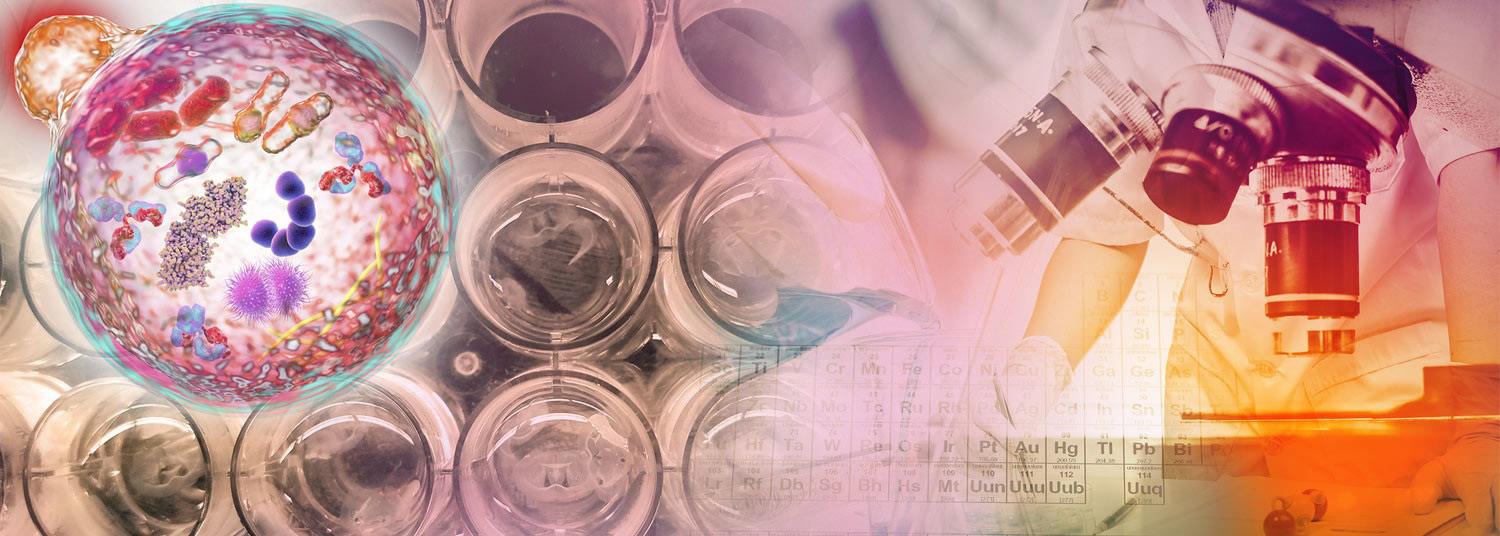January 27, 2020 | Deborah Kotz
Founding Director Will Transition to New Leadership Roles in School of Medicine As Two Associate Directors Assume Co-Director Roles of STAR
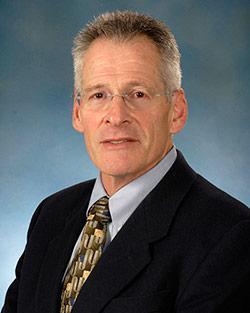 University of Maryland School of Medicine (UMSOM) Dean E. Albert Reece, MD, PhD, MBA, announced today that the UMSOM”s Shock, Trauma and Anesthesiology Research (STAR) Center will begin the next phase of its history with new leadership.
University of Maryland School of Medicine (UMSOM) Dean E. Albert Reece, MD, PhD, MBA, announced today that the UMSOM”s Shock, Trauma and Anesthesiology Research (STAR) Center will begin the next phase of its history with new leadership.
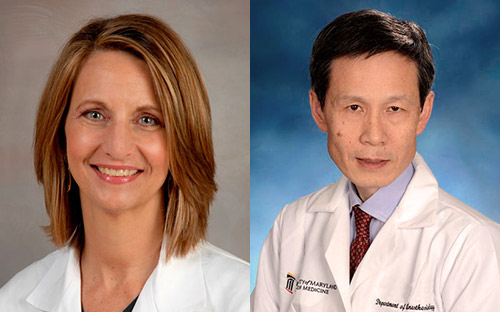 The Center, which recently celebrated its 10th anniversary, has been led by Alan Faden, MD, the David S. Brown Professor in Trauma at UMSOM, since its founding. Associate Directors Rosemary Kozar, MD, PhD, Professor of Surgery and Director of Translational Research, and Wei Chao, MD, PhD, The Dean’s Endowed Professor in Anesthesiology and Vice Chair for Translational Research, will now serve as the new Co-Directors of the STAR Center. Dr. Faden will expand his role as Associate Dean for Trans-Campus Research Advancement, including helping to facilitate research on Artificial Intelligence applications in Medicine, both across the campuses and with Microsoft Research. He also will continue to serve as Scientific Co-Director for the bi-campus Center for Sports Medicine Health and Human Performance. Dr. Faden’s neuroscience research group, which has grown to over 30 members, has recently received a number of new NIH grants that will expand its neurotrauma research relating to immunology, inflammation, brain-systemic interactions and exosome biology.
The Center, which recently celebrated its 10th anniversary, has been led by Alan Faden, MD, the David S. Brown Professor in Trauma at UMSOM, since its founding. Associate Directors Rosemary Kozar, MD, PhD, Professor of Surgery and Director of Translational Research, and Wei Chao, MD, PhD, The Dean’s Endowed Professor in Anesthesiology and Vice Chair for Translational Research, will now serve as the new Co-Directors of the STAR Center. Dr. Faden will expand his role as Associate Dean for Trans-Campus Research Advancement, including helping to facilitate research on Artificial Intelligence applications in Medicine, both across the campuses and with Microsoft Research. He also will continue to serve as Scientific Co-Director for the bi-campus Center for Sports Medicine Health and Human Performance. Dr. Faden’s neuroscience research group, which has grown to over 30 members, has recently received a number of new NIH grants that will expand its neurotrauma research relating to immunology, inflammation, brain-systemic interactions and exosome biology.
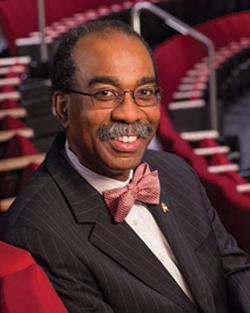 “I am so grateful to Dr. Faden for his extraordinary leadership in establishing the STAR Center and in catapulting it into a world-class research center that is among the top in the nation for critical care and trauma research,” said UMSOM Dean E. Albert Reece, MD, PhD, MBA, who is also University Executive Vice President for Medical Affairs and the John Z. and Akiko K. Bowers Distinguished Professor. “I am very confident that the transition to new leadership will be a smooth one, with Dr. Kozar and Dr. Chao at the helm, and I thank them for taking on this new role.”
“I am so grateful to Dr. Faden for his extraordinary leadership in establishing the STAR Center and in catapulting it into a world-class research center that is among the top in the nation for critical care and trauma research,” said UMSOM Dean E. Albert Reece, MD, PhD, MBA, who is also University Executive Vice President for Medical Affairs and the John Z. and Akiko K. Bowers Distinguished Professor. “I am very confident that the transition to new leadership will be a smooth one, with Dr. Kozar and Dr. Chao at the helm, and I thank them for taking on this new role.”
Leading Research Scientists Take the Helm
Dr. Chao and Dr. Kozar have both served as the associate directors of the STAR Center for the past several years, providing administrative leadership and expanding the Center’s research into clinical areas. Dr. Chao arrived at UMSOM in 2016 to be the Vice-Chair for Translational Research in the Department of Anesthesiology. He was recruited from the Massachusetts General Hospital and Harvard Medical School where he served as Associate Professor of Anesthesiology. His current research focuses on the role of novel innate immune signaling in coagulopathy, encephalopathy, and cardiomyopathy in sepsis, trauma, and cardiac ischemia and has published more than 70 peer-reviewed articles in the field. Dr. Chao has been continuously funded by the NIH since 2001 and is currently supported by multiple R01s and grants from the US Air Force.
Dr. Kozar, a Professor of Surgery at UMSOM, has been Associate Director of the STAR Center since 2015. She previously served as Vice Chair of Research and Academic Development, Surgery, at the University of Texas Health Science Center in Houston. Her research interests are in nutrition in the critically ill and endothelial dysfunction after hemorrhagic shock. She has published over 190 peer-reviewed articles and has been continuously funded by the NIH for almost 20 years.
Establishing a Great Legacy
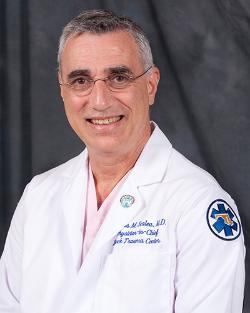 As the director of the STAR Center, Dr. Faden helped enact Dean Reece’s vision a decade ago to establish a multi-disciplinary research center focusing on traumatic brain injury, critical care, organ support, injury prevention, and surgical outcomes. Extramural research support for the STAR Center increased markedly in fiscal year 2019 - with $7.3 million in NIH support, $15.3 million in total federal funding and $19.9 million for all extramural funding. Last year, STAR faculty members published 212 research papers, the most ever for the Center.
As the director of the STAR Center, Dr. Faden helped enact Dean Reece’s vision a decade ago to establish a multi-disciplinary research center focusing on traumatic brain injury, critical care, organ support, injury prevention, and surgical outcomes. Extramural research support for the STAR Center increased markedly in fiscal year 2019 - with $7.3 million in NIH support, $15.3 million in total federal funding and $19.9 million for all extramural funding. Last year, STAR faculty members published 212 research papers, the most ever for the Center.
“Dr. Faden established a great legacy, taking the STAR Center from zero to 100 miles per hour in terms of the pace of the research,” said Thomas Scalea, MD, Physician-in-Chief of the R Adams Cowley Shock Trauma Center. “He hit every mark put in place by the Dean and exceeded those expectations, and he leaves with nothing but our thanks and gratitude.”
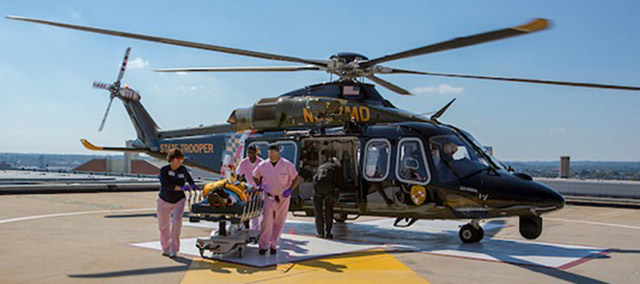
In addition to fostering a strong collaboration between the programs in trauma and anesthesiology, Dr. Faden established strong research relationships across the University of Maryland, Baltimore campus with the School of Nursing, School of Pharmacy and School of Dentistry, as well as with A. James Clark School of Engineering and the Institute for Advanced Computer Sciences (UMIACS) at the University of Maryland, College Park.
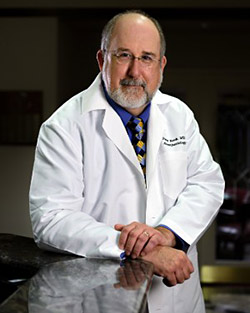 “Having such a broad mandate to advance the diverse fields of traumatic brain injury, critical care, and injury prevention presented a tough challenge, but Dr. Faden established an incredibly effective administrative team and created a solid research infrastructure to support new grants. He has fostered many collaborations within the School of Medicine, and beyond to other Schools on this campus and at College Park. He has also continued to be one of the most productive and well-funded scientists on our campus.” said Peter Rock, MD, MBA, Chair of the Department of Anesthesiology at UMSOM. “I am certain that Dr. Kozar and Dr. Chao will continue to further enhance and grow the research programs that define the STAR Center and take it to even greater levels of achievements.”
“Having such a broad mandate to advance the diverse fields of traumatic brain injury, critical care, and injury prevention presented a tough challenge, but Dr. Faden established an incredibly effective administrative team and created a solid research infrastructure to support new grants. He has fostered many collaborations within the School of Medicine, and beyond to other Schools on this campus and at College Park. He has also continued to be one of the most productive and well-funded scientists on our campus.” said Peter Rock, MD, MBA, Chair of the Department of Anesthesiology at UMSOM. “I am certain that Dr. Kozar and Dr. Chao will continue to further enhance and grow the research programs that define the STAR Center and take it to even greater levels of achievements.”
Advancing Critical Care Medicine
Some noteworthy accomplishments of the STAR Center include: the discovery of “danger molecules” that trigger heart attacks and sepsis during times of critical illness; new insights into novel ways to stop profuse traumatic bleeding; and the role of neurotoxic inflammation in contributing to lasting effects of traumatic brain injury.
The STAR Center’s broad mandate to advance the field of injury prevention and critical care medicine began when the Charles “McC” Mathias Jr National Study Center for Trauma and Emergency Medical Systems was established by Congress as a research center is to prevent death and disability caused by injury and sudden illness. NSC studies have been used to improve vehicular safety, to refine patient care, and to develop public education programs for the prevention of trauma.
“Helping to create a novel research partnership that links the Program in Trauma and the Department of Anesthesiology has been exciting and remarkably productive,” said Dr. Faden. “I believe that the STAR Center has considerable additional growth potential and that it will continue to thrive under the excellent new Co-Directors.”
About the University of Maryland School of Medicine
Now in its third century, the University of Maryland School of Medicine was chartered in 1807 as the first public medical school in the United States. It continues today as one of the fastest growing, top-tier biomedical research enterprises in the world -- with 45 academic departments, centers, institutes, and programs; and a faculty of more than 3,000 physicians, scientists, and allied health professionals, including members of the National Academy of Medicine and the National Academy of Sciences, and a distinguished two-time winner of the Albert E. Lasker Award in Medical Research. With an operating budget of more than $1.2 billion, the School of Medicine works closely in partnership with the University of Maryland Medical Center and Medical System to provide research-intensive, academic and clinically based care for nearly 2 million patients each year. The School of Medicine has more than $540 million in extramural funding, with most of its academic departments highly ranked among all medical schools in the nation in research funding. As one of the seven professional schools that make up the University of Maryland, Baltimore campus, the School of Medicine has a total population of nearly 9,000 faculty and staff, including 2,500 students, trainees, residents, and fellows. The combined School of Medicine and Medical System (“University of Maryland Medicine”) has an annual budget of nearly $6 billion and an economic impact more than $15 billion on the state and local community. The School of Medicine faculty, which ranks as the 8th highest among public medical schools in research productivity, is an innovator in translational medicine, with 600 active patents and 24 start-up companies. The School of Medicine works locally, nationally, and globally, with research and treatment facilities in 36 countries around the world. Visit medschool.umaryland.edu
About the University of Maryland Medical Center
The University of Maryland Medical Center (UMMC) is comprised of two hospitals in Baltimore: an 841-bed teaching hospital Downtown – the flagship institution of the 14-hospital University of Maryland Medical System (UMMS) – and a 177-bed teaching hospital, UMMC Midtown Campus. UMMC is a national and regional referral center for trauma, cancer care, neuroservices, cardiac care, diabetes and endocrinology, women’s and children’s health. All physicians on staff at the Downtown flagship hospital are faculty physicians of the University of Maryland School of Medicine. At UMMC Midtown Campus, faculty physicians work alongside community physicians to provide patients with the highest quality care. UMMC Midtown Campus was founded in 1881 and is located one mile away from the Downtown Campus. For more information, visit umm.edu.
Contact
Office of Public Affairs
655 West Baltimore Street
Bressler Research Building 14-002
Baltimore, Maryland 21201-1559
Contact Media Relations
(410) 706-5260
Deborah Kotz
Director of Media Relations
Office of Public Affairs & Communications
University of Maryland School of Medicine
o: 410-706-4255
c: 410-804-0054
t: @debkotz2
Related stories
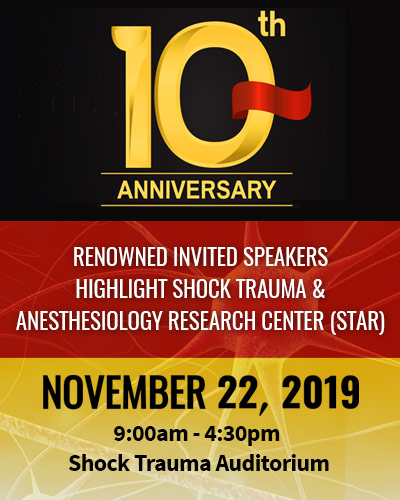
Friday, November 22, 2019
UM School of Medicine Marks 10th Anniversary of Shock Trauma and Anesthesiology Research (STAR) Center
The Shock Trauma and Anesthesiology Research (STAR) Center at the University of Maryland School of Medicine (UMSOM), one of the first centers in the U.S. dedicated exclusively to studying the prevention and treatment of trauma, held a full-day symposium to mark the Research Center’s 10-year anniversary. Over the past decade, the world-class, multi-disciplinary research center has focused on traumatic brain injury, critical care, organ support, injury prevention, and surgical outcomes.
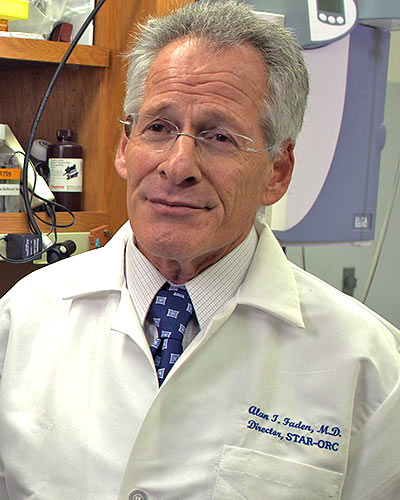
Thursday, December 07, 2017
University of Maryland School of Medicine Scientists Find that Traumatic Brain Injury Causes Intestinal Damage
University of Maryland School of Medicine (UMSOM) researchers have found a two-way link between traumatic brain injury (TBI) and intestinal changes. These interactions may contribute to increased infections in these patients, and may also worsen chronic brain damage.
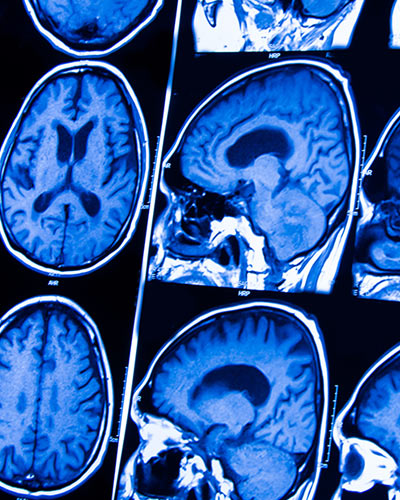
Monday, March 20, 2017
University of Maryland School of Medicine Researchers Identify New Pathway for Brain Inflammation
University of Maryland School of Medicine (UM SOM) researchers have identified a new mechanism by which inflammation can spread throughout the brain after injury. This mechanism may explain the widespread and long-lasting inflammation that occurs after traumatic brain injury, and may play a role in other neurodegenerative diseases.
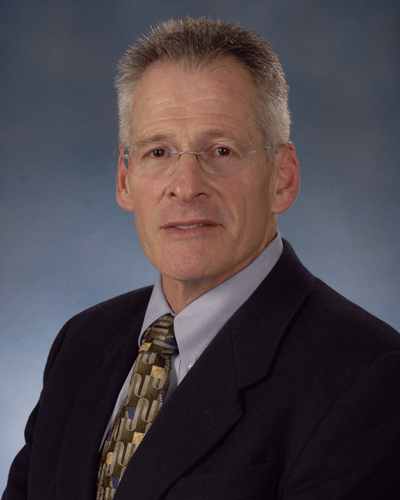
Monday, December 05, 2016
UMSOM Neuroscientist, Dr. Alan Faden, to Lead Research Collaborations Across University Campuses
University of Maryland School of Medicine Dean E. Albert Reece announced today that Alan I. Faden, MD, the David S. Brown Professor in Trauma and Professor of Anesthesiology at the University of Maryland School of Medicine (UM SOM), and Director of the UM SOM Shock Trauma and Anesthesiology Research center (STAR), has been appointed to the new position of Associate Dean for Trans-Campus Research Advancement at the UM SOM.

